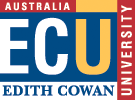COURSE INFORMATION
Disclaimer
This course information may be updated and amended immediately prior to semester. To ensure you have the correct outline, please check it again at the beginning of semester.
| K20 Bachelor of Engineering/Bachelor of Business | ||||||||||||||||||||||||||||||||||||||||||||||||||||||||||||||||||||||||||||||||||||||||||||||||||||||||||||||||||||||||||||||||||||||||||||||||||||||||||||||||||||||||||||||||||||||||||||||||||||||||||||||||||||||||||||||||||||||||||||||||||||
There is a growing demand in high-technology industries and research centres, especially in Information Technology and Telecommunications, for engineers with knowledge and professional skills in business, management and relevant areas of science. While providing a major area of study in any one of the Mechatronics, Instrumentation Control and Automation, or Electronics & Communications Engineering areas, the double degree programs broaden the overall knowledge of students in areas which are complementary to their technical skills. This double degree course requires five years of full-time study. |
||||||||||||||||||||||||||||||||||||||||||||||||||||||||||||||||||||||||||||||||||||||||||||||||||||||||||||||||||||||||||||||||||||||||||||||||||||||||||||||||||||||||||||||||||||||||||||||||||||||||||||||||||||||||||||||||||||||||||||||||||||
| ADMISSION REQUIREMENTS In addition to meeting standard admission requirements, applicants must have passed Applicable Mathematics or Calculus at Year 12 level. Students who have completed an Associate Diploma or its equivalent in an allied engineering field may be admitted to the Bachelor of Engineering with advanced standing. |
||||||||||||||||||||||||||||||||||||||||||||||||||||||||||||||||||||||||||||||||||||||||||||||||||||||||||||||||||||||||||||||||||||||||||||||||||||||||||||||||||||||||||||||||||||||||||||||||||||||||||||||||||||||||||||||||||||||||||||||||||||
| SPECIAL ADMISSION REQUIREMENTS Applicants must have passed Applicable Mathematics or Calculus at Year 12 level. |
||||||||||||||||||||||||||||||||||||||||||||||||||||||||||||||||||||||||||||||||||||||||||||||||||||||||||||||||||||||||||||||||||||||||||||||||||||||||||||||||||||||||||||||||||||||||||||||||||||||||||||||||||||||||||||||||||||||||||||||||||||
| COURSE LOCATION This course is available on Joondalup Campus. |
||||||||||||||||||||||||||||||||||||||||||||||||||||||||||||||||||||||||||||||||||||||||||||||||||||||||||||||||||||||||||||||||||||||||||||||||||||||||||||||||||||||||||||||||||||||||||||||||||||||||||||||||||||||||||||||||||||||||||||||||||||
| MODE OF STUDY This course is available by Full-time, or Part-time mode. |
||||||||||||||||||||||||||||||||||||||||||||||||||||||||||||||||||||||||||||||||||||||||||||||||||||||||||||||||||||||||||||||||||||||||||||||||||||||||||||||||||||||||||||||||||||||||||||||||||||||||||||||||||||||||||||||||||||||||||||||||||||
| MODE OF DELIVERY This course is available in the following mode of delivery - On-campus. |
||||||||||||||||||||||||||||||||||||||||||||||||||||||||||||||||||||||||||||||||||||||||||||||||||||||||||||||||||||||||||||||||||||||||||||||||||||||||||||||||||||||||||||||||||||||||||||||||||||||||||||||||||||||||||||||||||||||||||||||||||||
| COURSE STRUCTURE The Bachelor of Engineering (BEng) and Bachelor of Business (BBus) double degree consists of 44 units. 43 of these units are valued at 15 credit points giving a total course value of 645 credit points. A student must complete units to a total value of 420 credit points (29 units) in the BEng program. The BEng component will include seventeen (17) BEng foundation units and a twelve (12) unit major. The BBus consists of fifteen (15) units in total including an eight unit major to a total of 225 credit points. Please note that students undertaking a Major in Accounting (MAAAAH) and wishing to attain CPA/ICAA accreditation will be required to undertake an extra 45 credit points (3 units).
The Double Degree Structure:
17 BEng Foundation Units 12 BEng Units for an Engineering Major 15 Business Units as outlined below:
Business Core A student must complete three of the following six units to a total value of 45 credit points :
ACC1100 - Accounting 1 (15 credit points) ECF1110 - Economics 1 (15 credit points) ECF1120 - Finance 1 (15 credit points) LAW1100 - Legal Framework 1 (15 credit points)
Engineering students who complete ENS1153 Introduction to Computer Technology are exempt from MIS1600 e-Business Systems. PLUS Business Edge A student must complete the following four Business Edge units to a total value of 60 credit points :
BES1100 - Foundations of Business Knowledge (15 credit points) BES1200 - Business Knowledge Development (15 credit points) BES2100 - Foundations of Business Leadership (15 credit points) BES3100 - Business Career Development (15 credit points) |
||||||||||||||||||||||||||||||||||||||||||||||||||||||||||||||||||||||||||||||||||||||||||||||||||||||||||||||||||||||||||||||||||||||||||||||||||||||||||||||||||||||||||||||||||||||||||||||||||||||||||||||||||||||||||||||||||||||||||||||||||||
| ||||||||||||||||||||||||||||||||||||||||||||||||||||||||||||||||||||||||||||||||||||||||||||||||||||||||||||||||||||||||||||||||||||||||||||||||||||||||||||||||||||||||||||||||||||||||||||||||||||||||||||||||||||||||||||||||||||||||||||||||||||
Last Updated - Higher Education: 3/31/2008 VET: 3/31/2008
